-

email us
lisa@simplewatersofteners.com
-

Call Us
(210) 960-2555
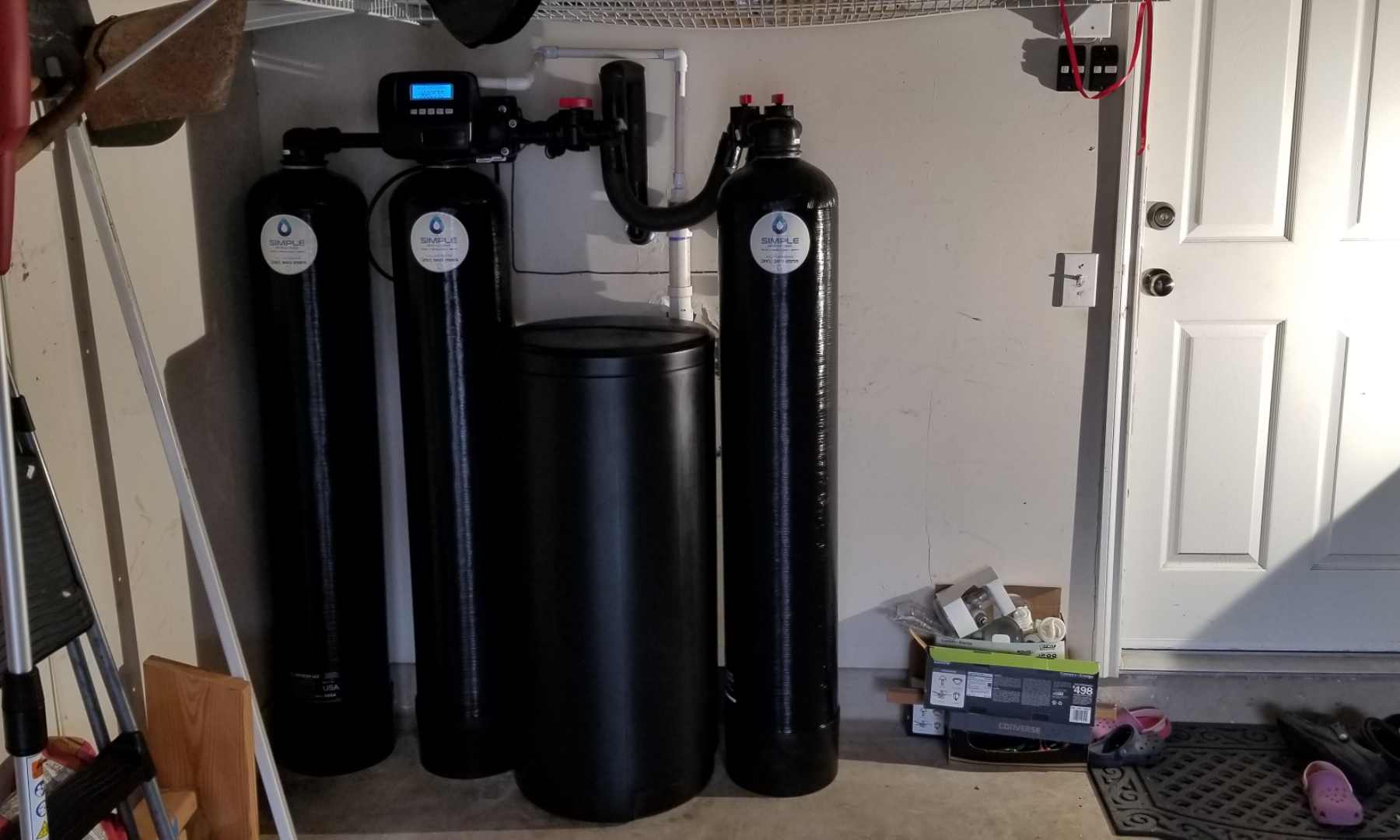
05 Jun. 2025
Is Your Water Softener Summer-Ready? A Quick Maintenance Checklist
Summer in San Antonio means high heat, increased water usage, and greater stress on your home’s plumbing and appliances. If you rely on a water softener to protect your pipes and keep your water comfortable, now is the perfect time to give it a quick check-up.
Here’s a simple, step-by-step maintenance checklist to ensure your water softener is running smoothly throughout the hottest months of the year.
✅ 1. Check Your Salt Levels
Salt is the key to your softener’s regeneration process.
- What to do: Open the brine tank and make sure the salt is at least half full. If it’s low, top it off with the recommended salt type for your system—typically solar salt crystals or pellets.
- Tip: Break up any salt bridges that may have formed due to humidity or compacted salt, which can prevent the system from regenerating properly.
✅ 2. Clean the Brine Tank (If Needed)
Over time, sludge and build-up can reduce your softener’s efficiency.
- What to do: If you notice brown residue or your softener isn’t performing well, it might be time to clean the tank.
- How: Disconnect the system, empty the old salt, rinse the tank with soapy water, and flush thoroughly before refilling it with fresh salt.
✅ 3. Inspect for Leaks or Salt Buildup
San Antonio’s hot, dry weather can worsen minor issues over time.
- What to do: Look for visible signs of wear on hoses, fittings, and valves. Check around the base of the unit for any water pooling or crusty white salt deposits.
✅ 4. Test the Water Hardness
Ensure your system is actually softening water effectively.
- What to do: Use a water hardness test kit (available online or in local stores) to measure your home’s water. If the results show hard water, your softener may need a service check or adjustment.
✅ 5. Schedule a Professional Tune-Up (Optional but Recommended)
Annual professional maintenance can extend the life of your system.
- Why: A pro can flush the resin bed, adjust settings, and inspect internal components you might miss.
- When: June is a great time—right before peak summer usage.
Bonus Tip: Set a Calendar Reminder
Mark your calendar for monthly salt checks throughout the summer. Increased water use (lawn watering, showers, etc.) means your softener works harder and uses more salt.
Final Thoughts
Don’t let hard water issues creep up during the peak of summer. A quick 15-minute maintenance check can help you avoid costly repairs, protect your appliances, and ensure your family enjoys clean, soft water all season long.
Need help with your system or ready to schedule a summer check-up? Contact Simple Water Softeners today at (210) 960-2555 or visit simplewatersofteners.com to book your service.
- By:Lisa Bauer
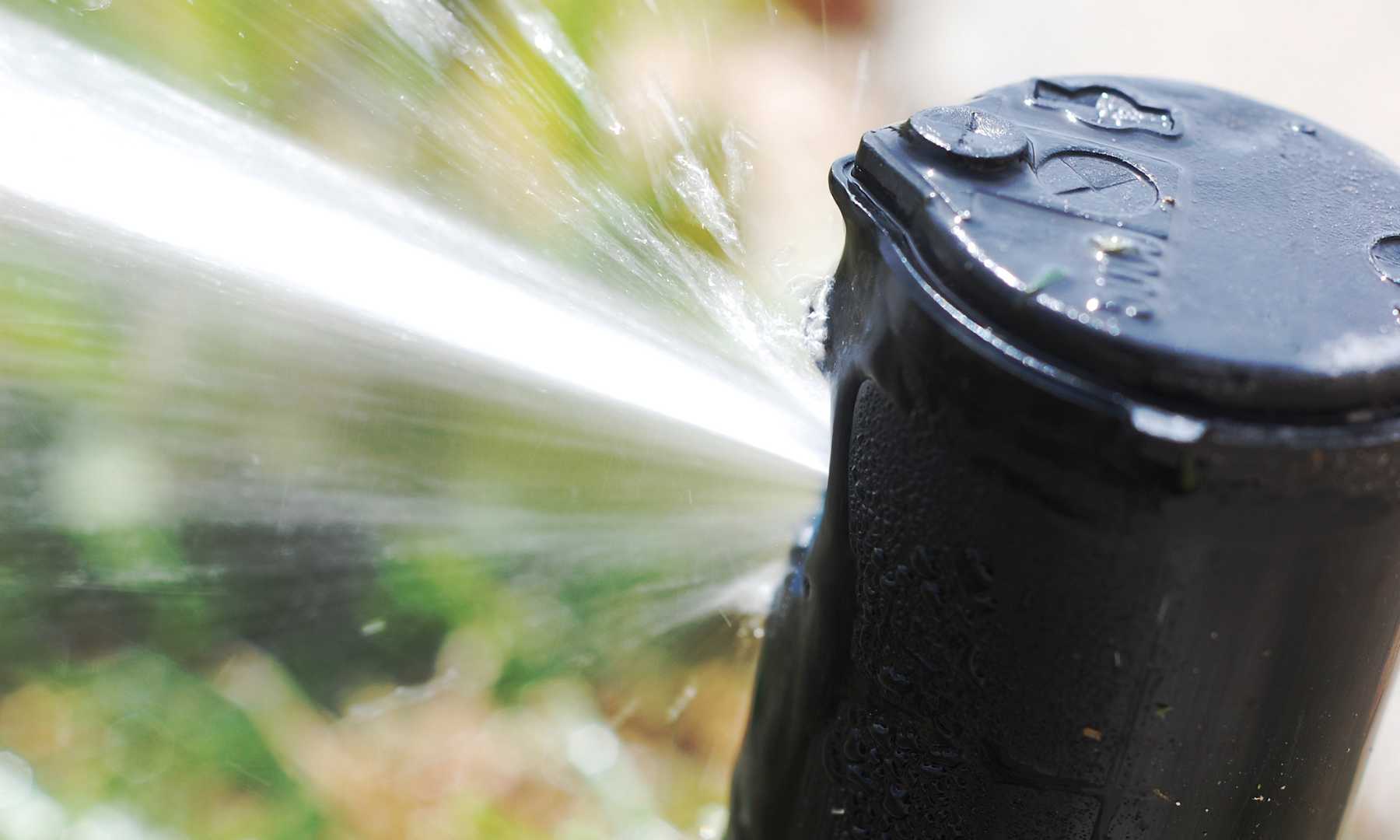
06 May. 2025
How Hard Water Affects Your Lawn Irrigation System
In San Antonio, hard water is more than just a nuisance—it can quietly wreak havoc on your home, appliances, and even your lawn irrigation system. While many homeowners focus on water quality inside the house, your sprinkler system and outdoor plumbing are also highly vulnerable to the damaging effects of mineral-rich water.
At Simple Water Softeners, we’re here to explain how hard water can impact your irrigation system—and what you can do to protect it.
What Is Hard Water?
Hard water contains high levels of calcium and magnesium, naturally occurring minerals that build up over time. San Antonio is known for its particularly hard water, making it a common issue for homeowners in the area.
1. Clogged Sprinkler Heads
As hard water flows through your irrigation system, it leaves behind mineral deposits—commonly known as limescale. These deposits can:
- Build up inside sprinkler heads
- Reduce water flow
- Cause uneven lawn coverage
Eventually, your system may start spraying poorly or not at all, leading to brown patches and wasted water.
2. Damaged Pipes and Valves
Mineral buildup doesn’t stop at the sprinkler heads. Over time, limescale can accumulate inside your irrigation system’s piping and valves, restricting water pressure and damaging essential components.
This leads to:
- Reduced system efficiency
- Increased wear and tear
- Costly repairs or premature replacements
3. Decreased Water Efficiency
Hard water is less efficient at hydrating your lawn. The minerals in the water can alter soil composition, making it harder for grass roots to absorb moisture.
The result?
You may end up using more water than necessary, increasing your utility bills without improving your lawn’s health.
4. Shortened System Lifespan
The long-term effects of hard water can shorten the lifespan of your irrigation system. Corrosion, blockages, and valve failures are more common in systems that rely on untreated hard water.
How a Water Softener Can Help
Installing a whole-home water softener helps remove excess minerals from your water before it ever reaches your irrigation system. This offers key benefits:
- Keeps sprinkler heads and pipes clean
- Maintains consistent water pressure
- Reduces the need for frequent maintenance
- Extends the life of your irrigation components
- Improves overall water efficiency for your lawn
San Antonio Homeowners: Protect Your Investment
With summer just around the corner, your lawn is about to demand more attention—and water. Don’t let hard water compromise your irrigation system or increase your maintenance costs.
At Simple Water Softeners, we specialize in affordable, effective water softening solutions built for San Antonio’s hard water conditions. Whether you’re looking to protect your landscaping, plumbing, or appliances, our systems are designed to make your home run smoother inside and out.
Contact us today for a free consultation and learn how soft water can make a big difference—both indoors and in your yard.
- By:Lisa Bauer
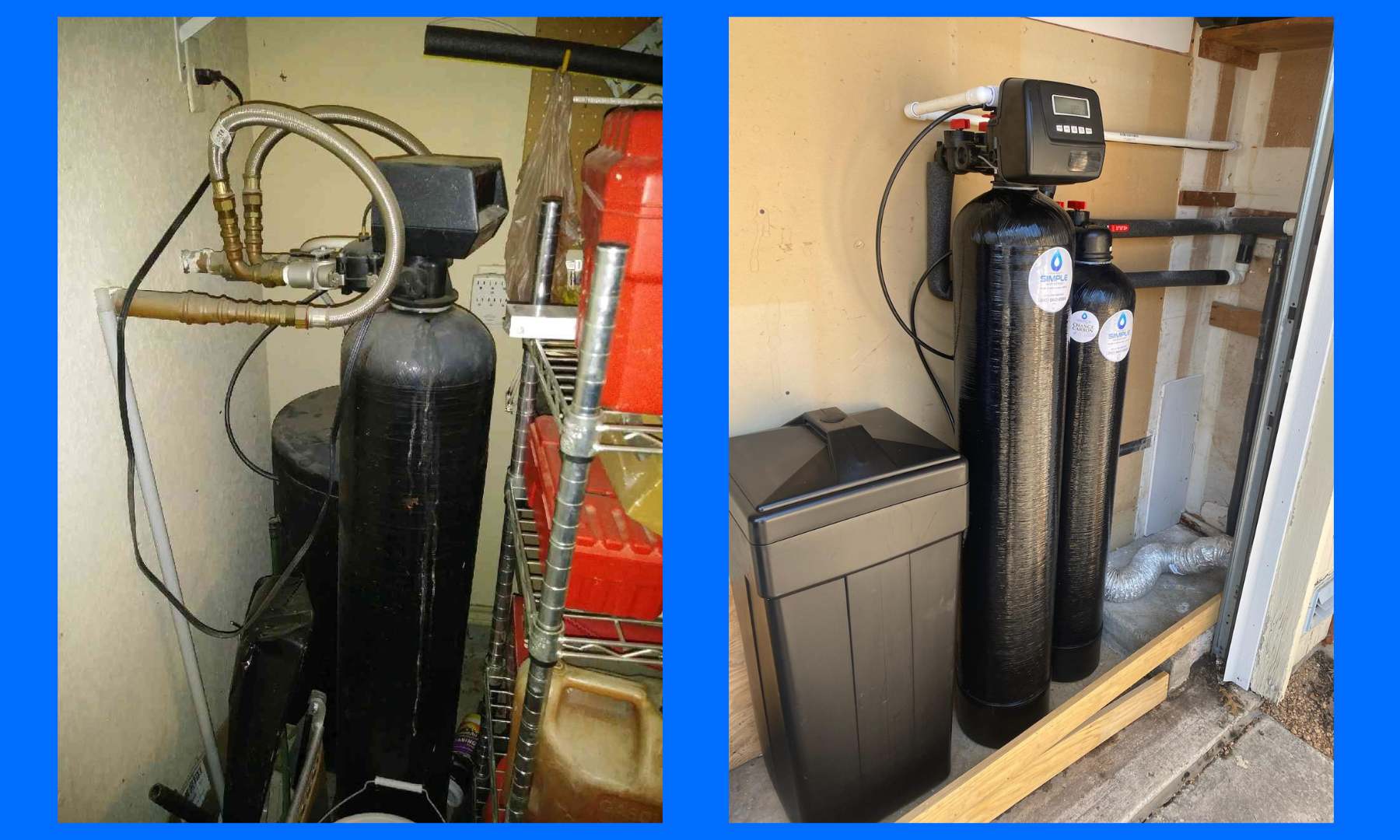
10 Apr. 2025
Is It Time to Upgrade Your Water Softener This Spring?
As spring arrives in San Antonio, many homeowners take the opportunity to deep clean, refresh their homes, and prepare for the hot summer ahead. But one important system is often overlooked during spring maintenance: your water softener.
If your current system is several years old or not performing like it used to, this season could be the perfect time to consider an upgrade. At Simple Water Softeners, we help San Antonio homeowners ensure their water systems are running efficiently and effectively. Here’s how to know if it’s time to upgrade — and why spring is the best season to do it.
💧 Signs It’s Time to Replace Your Water Softener
Even the best systems don’t last forever. Most water softeners have a lifespan of 10–15 years depending on quality, usage, and maintenance. If you’re noticing any of the signs below, your system might be due for a replacement:
1. Your Water Feels Hard Again
- Spotty dishes, soap scum, and dry skin are common signs that your softener isn’t working properly.
2. Frequent Repairs or Salt Bridges
- If you’re calling for service more often or having issues with salt bridges, your unit may be on its last legs.
3. Old Technology
- Older softeners don’t offer the efficiency or water-saving features available in newer systems — especially important in drought-prone San Antonio.
4. High Utility Bills
- An aging system can become inefficient, using more water and salt than necessary.
5. Unusual Noises or Leaks
- Strange sounds, leaks, or system malfunctions are strong indicators it’s time to upgrade.
🌼 Why Spring Is the Ideal Time to Upgrade in San Antonio
- Perfect Timing Before Summer Demand
San Antonio’s water usage spikes in the summer. Upgrading in spring ensures your new softener is ready to handle the higher demand without missing a beat. - Better Energy Efficiency
Modern systems are designed to be more energy- and salt-efficient, saving you money throughout the hot months ahead. - Spring Cleaning Synergy
Soft water makes spring cleaning easier by reducing soap residue and buildup on fixtures, appliances, and windows. - Seasonal Promotions
Spring is often when manufacturers and installers (like us!) offer special deals, making it a smart time to invest in a new system.
🔄 What to Look for in a New Water Softener
When shopping for a new water softener, here are a few key features to consider:
- Proper capacity based on your household size and water hardness level.
- High-efficiency models that reduce water and salt waste.
- Digital controls and smart features for easier monitoring.
- Warranty and local support for peace of mind and long-term reliability.
🛠️ Let Simple Water Softeners Help You Upgrade the Right Way
At Simple Water Softeners, we make upgrading stress-free. We’ll evaluate your current system, test your water, and recommend the right softener for your needs — no pressure, just expert advice.
📞 Contact us today to schedule a free consultation and find out if this spring is the right time to upgrade your water softener. Your home (and your appliances) will thank you!
- By:Lisa Bauer
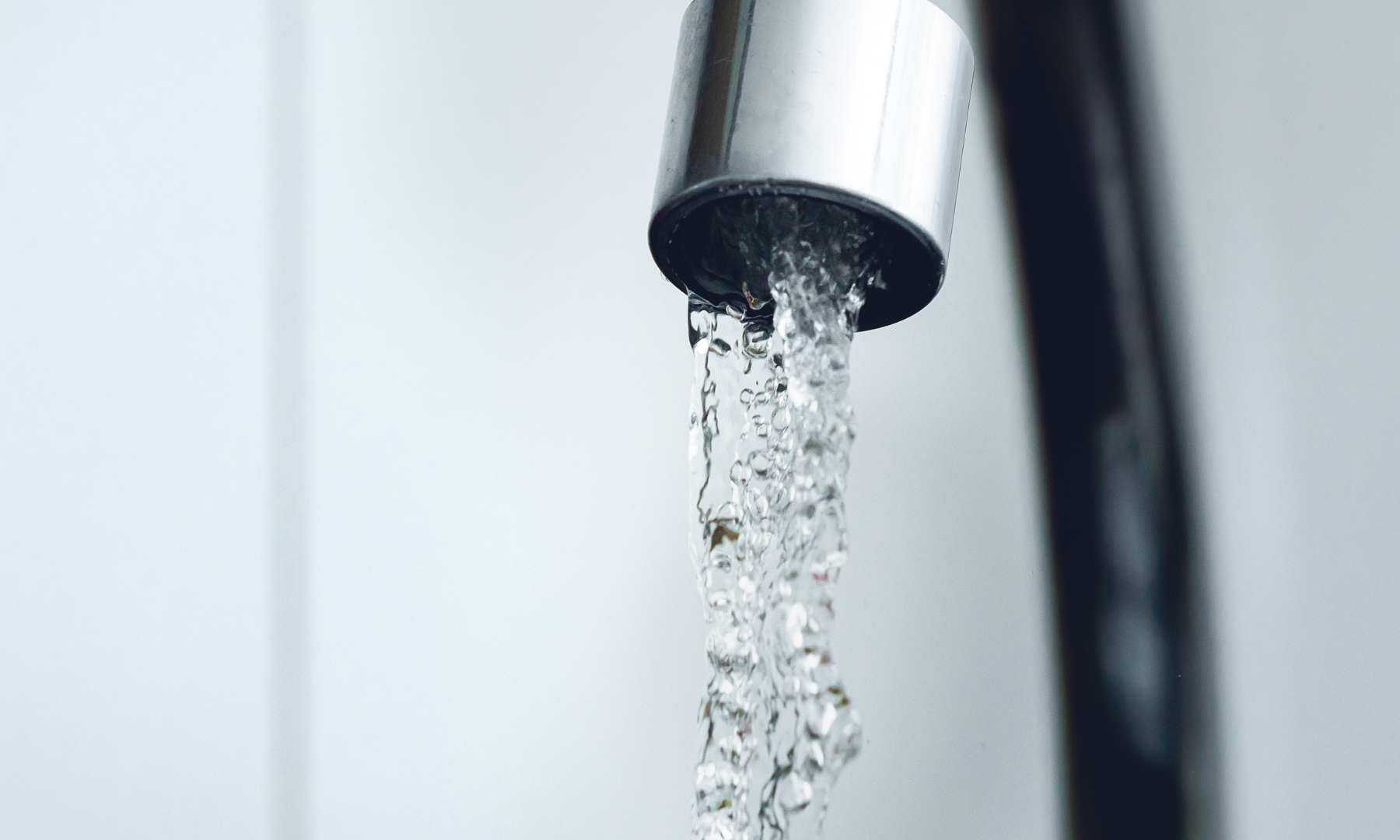
10 Mar. 2025
Hard Water vs. Soft Water: Why San Antonio Homeowners Need a Water Softener
San Antonio is known for its rich history, vibrant culture, and—unfortunately—its hard water. If you’ve noticed white spots on dishes, dry skin after showers, or scale buildup on appliances, you’re dealing with hard water. But what exactly is the difference between hard and soft water, and why does it matter for your home? Let’s break it down.
What is Hard Water?
Hard water contains high levels of dissolved minerals, primarily calcium and magnesium. While not harmful to drink, it can cause a range of household problems, including:
- Soap Scum Buildup – Hard water makes it difficult for soap and detergent to dissolve, leaving behind residue on skin, hair, and surfaces.
- Appliance Damage – Mineral buildup can clog pipes and reduce the efficiency of water heaters, dishwashers, and washing machines.
- Dry Skin and Hair – Hard water strips away natural oils, leading to dryness and irritation.
- Spotted Dishes and Glassware – Water spots and cloudy film appear on dishes, even after they’ve been washed.
- Reduced Water Flow – Scale buildup in pipes can decrease water pressure over time.
What is Soft Water?
Soft water is free of excessive minerals because it has been treated through a water softener. The softening process removes calcium and magnesium, replacing them with small amounts of sodium or potassium. This leads to several benefits:
- Cleaner Dishes and Laundry – Soap lathers better, leaving your dishes and clothes spotless.
- Softer Skin and Hair – Without mineral deposits, your skin and hair retain moisture, feeling smoother and healthier.
- Longer Appliance Lifespan – Water softeners help prevent scale buildup, extending the life of your plumbing and appliances.
- Lower Energy Bills – A water heater with soft water runs more efficiently, saving you money on energy costs.
- Less Cleaning, More Convenience – Say goodbye to scrubbing hard water stains off sinks, showers, and fixtures.
How a Water Softener Works
A water softener removes hard minerals through a process called ion exchange. As water passes through the softener’s resin beads, calcium and magnesium ions are exchanged for sodium or potassium ions. The result? Water that feels silkier, cleans better, and protects your home from scale buildup.
Does San Antonio Need Water Softeners?
Absolutely! San Antonio has some of the hardest water in Texas, with mineral levels often exceeding 15 grains per gallon (gpg)—well above the threshold for “very hard” water (7 gpg or higher). That means most homes in the area are dealing with hard water problems daily.
Get a Water Softener Today
If you’re tired of dealing with the effects of hard water, it’s time to invest in a quality water softener. At Simple Water Softeners, we provide expert solutions tailored to your home’s needs. Whether you need a new system or maintenance for your existing one, we’ve got you covered.
🔹 Contact us today to learn more about our top-rated water softeners in San Antonio.
- By:Lisa Bauer

06 Dec. 2024
Preparing Your Water Softener for Holiday Guests: A Quick Guide for San Antonio Homeowners
The holiday season is here, and for many homeowners in the San Antonio area, it means hosting family and friends. With more people using your water system, your water softener will be working overtime. Proper preparation ensures your water softener operates efficiently, keeping your guests comfortable and your home running smoothly. Here’s a quick guide to getting your water softener ready for the extra demand this holiday season.
Why Your Water Softener Matters During the Holidays in San Antonio
In the San Antonio area, where hard water is a common issue, a water softener is essential year-round. During the holidays, it plays an even more critical role by:
- Improving Cleaning Efficiency: Dishes, linens, and laundry come out spotless with soft water.
- Protecting Plumbing and Appliances: Soft water prevents scale buildup, reducing clogs and damage to your pipes and appliances.
- Enhancing Guest Comfort: Soft water is gentler on skin and hair, offering your guests a luxurious experience.
Steps to Prepare Your Water Softener for Holiday Use in San Antonio
1. Check Your Salt Levels
San Antonio’s hard water requires your water softener to use salt effectively to remove hardness minerals.
- Open the brine tank and ensure the salt level is at least halfway full.
- If you notice a crusty layer (salt bridge), gently break it up or remove it.
- Refill the tank with high-quality salt specifically designed for water softeners.
2. Perform a System Regeneration
Regenerating your water softener cleans the resin beads, ensuring they’re ready to handle the increased water usage typical during the holidays.
- Many systems regenerate automatically, but you can manually start a regeneration cycle for optimal performance.
- Check your user manual or contact a local San Antonio water softener expert for guidance.
3. Inspect for Salt Buildup or Clogs
San Antonio’s hard water can lead to salt and mineral deposits in your water softener system.
- Inspect the brine tank for clogs or residue.
- If buildup is present, clean the tank by draining it, rinsing with warm water, and refilling it with fresh salt.
4. Adjust Your System Settings
With more guests in your home, your water usage will increase. Adjust your water softener settings to keep up with the demand.
- Verify the hardness level setting matches San Antonio’s hard water conditions.
- Increase the regeneration frequency temporarily to maintain consistent performance.
5. Check Your Water Pressure
Proper water pressure is essential for your water softener to function effectively.
- Ensure your water pressure is within the recommended range (typically 40–70 psi).
- If you experience weak water flow, inspect your plumbing for leaks or blockages or contact a San Antonio plumbing expert.
6. Test the System for Optimal Performance
Run a quick test to ensure your water softener is operating correctly.
- Check for error codes or warning lights on your system.
- Perform a simple soap test: soft water should lather easily and leave no residue.
7. Stock Up on Supplies
Avoid holiday interruptions by having extra supplies on hand.
- Keep an extra bag of salt to ensure your water softener runs smoothly.
- Consider a maintenance kit for quick fixes or adjustments.
The Benefits of a Well-Maintained Water Softener in San Antonio
In a region like San Antonio, where hard water is a persistent issue, a well-maintained water softener ensures:
- Cleaner, Spot-Free Dishes: Your holiday table settings will shine without unsightly spots or film.
- Comfortable Showers for Guests: Soft water is gentle on hair and skin, providing a spa-like experience.
- Protection for Your Home: Your appliances and plumbing stay safe from hard water damage, saving you money in the long run.
Schedule Professional Water Softener Maintenance in San Antonio
Preparing your water softener for the holiday season is vital to maintaining a smooth and stress-free home. If you’re unsure about performing these tasks or need professional assistance, Simple Water Softeners is here to help.
Contact us today for expert water softener maintenance and service in the San Antonio area. Let us ensure your system is holiday-ready, so you can focus on creating memorable moments with your family and friends!
- By:Lisa Bauer
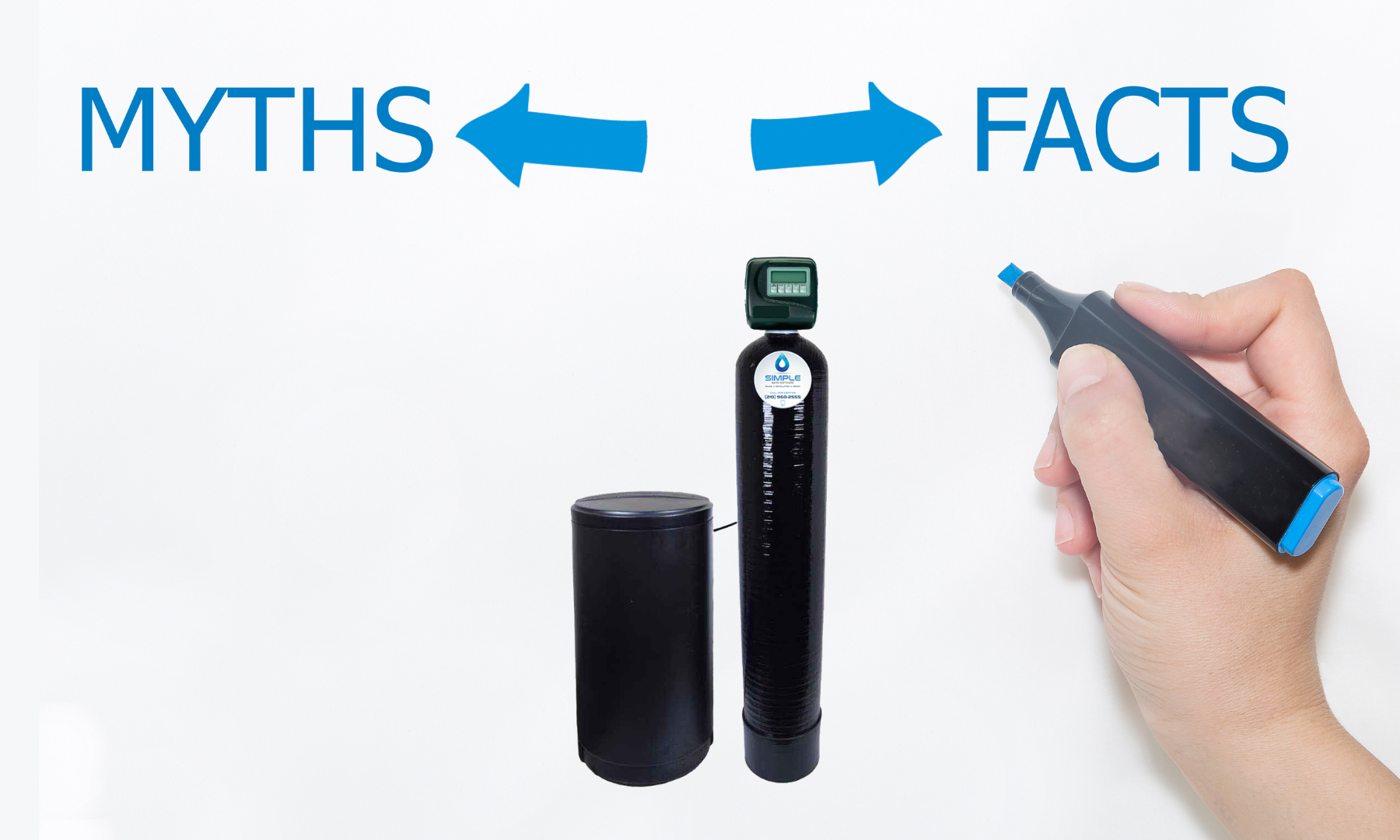
08 Nov. 2024
Common Myths About Water Softeners: What San Antonio Homeowners Should Know This Fall
Water softeners play a crucial role in combating the hard water issues that are common in San Antonio. However, there are many myths and misconceptions surrounding these systems, which can lead homeowners to misunderstand their benefits or hesitate to invest in one. This fall, let’s debunk some of the most common myths about water softeners and set the record straight for San Antonio homeowners.
Myth 1: “Water Softeners Make Your Water Salty”
One of the most widespread myths is that water softeners add salt to your drinking water, making it taste salty. In reality, water softeners don’t add salt to the water supply. Instead, they use a process called ion exchange, where sodium ions replace the hard minerals like calcium and magnesium. The amount of sodium introduced into the water is minimal and generally imperceptible.
- The Truth: Your softened water won’t taste salty. The small amount of sodium added is usually far below the threshold for a noticeable taste.
Myth 2: “Soft Water Is Bad for Your Health”
Some people believe that soft water, because of the small sodium content, could be harmful to your health. This is particularly concerning for individuals on low-sodium diets. However, the sodium levels added by water softeners are extremely low. In fact, an 8-ounce glass of softened water contains less sodium than a slice of bread.
- The Truth: For most people, the amount of sodium added to softened water poses no health risk. If sodium intake is a concern, you can opt to use potassium-to regenerate. Water softeners work off potassium or salt. You can also install a reverse osmosis system for drinking water and remove 97% of the sodium. We advise talk to your doctor for your health concerns.
Myth 3: “Water Softeners Waste Water”
Some homeowners worry that water softeners use too much water during the regeneration process. While older models may have been less efficient, modern water softeners are designed to minimize water usage. Additionally, newer systems can be programmed to regenerate only when necessary, making them far more eco-friendly than their predecessors.
- The Truth: Today’s water softeners are highly efficient and use minimal water. Plus, by preventing scale buildup in your pipes and appliances, they can help reduce overall water and energy usage in your home.
Myth 4: “Softened Water Damages Your Plants”
There’s a common belief that softened water, because it contains sodium, is harmful to plants. While it’s true that sodium can affect plant growth, the amount present in softened water is usually not enough to cause any damage to hardier plants. Delicate plants like orchids and African violets use water from outside or a reverse osmosis. That said, for outdoor irrigation the hose bibs should be plumbed hard water.
- The Truth: Softened water is safe for most indoor plants. You can get a soft water hose bib or even a hard water bib installed in the garage. Or you can use potassium to regenerate your water softener if you are a plant enthusiast.
Myth 5: “Water Softeners Are Expensive to Maintain”
Many homeowners assume that the cost of maintaining a water softener outweighs the benefits. However, regular maintenance is simple and inexpensive. The primary maintenance task is ensuring there’s enough salt in the brine tank, which is a low-cost investment. Additionally, the long-term savings on plumbing repairs, appliance longevity, and reduced energy bills far outweigh the minimal maintenance costs.
- The Truth: The cost of maintaining a water softener is minimal compared to the long-term benefits of having one, such as reduced energy bills, fewer plumbing issues, and longer-lasting appliances.
Myth 6: “You Don’t Need a Water Softener in San Antonio”
Some homeowners in San Antonio believe that hard water isn’t a significant issue, and a water softener isn’t necessary. However, San Antonio’s water is notoriously hard, with high levels of calcium and magnesium that can damage pipes, appliances, and even your skin and hair over time.
- The Truth: Water softeners are essential in San Antonio to combat the high mineral content in the local water supply. Investing in a water softener will protect your home and improve your water quality.
Myth 7: “Soft Water Feels Slimy or Unclean”
Soft water can feel different than hard water, often described as “slippery” or “slimy.” This sensation is due to the absence of hard minerals like calcium and magnesium, which tend to leave a film on your skin. Soft water allows soap to lather and rinse off more effectively, leaving your skin feeling cleaner rather than coated with a mineral residue.
- The Truth: The “slimy” feeling of soft water is actually a sign that your skin is cleaner. Soft water helps soap and shampoo rinse off more thoroughly, leaving your skin and hair feeling smooth and healthy.
Myth 8: “Water Softeners Are Bad for the Environment”
Some homeowners worry that water softeners, especially those that use salt, may harm the environment. While there is some concern over the discharge of salt into wastewater systems, advancements in technology have made water softeners much more eco-friendly. Water softeners work off gallons used. So it is important to have your system set up properly. Moreover, they reduce energy consumption by preventing scale buildup in water heaters and other appliances.
- The Truth: Modern water softeners are designed to be efficient and eco-friendly, and the energy savings they provide more than offset the small amount of salt they discharge. You can always use potassium , all water softeners work off salt or potassium.
Conclusion: Understanding the truth behind these myths can help San Antonio homeowners make informed decisions about water softeners. With San Antonio’s hard water challenges, having a water softener is more than just a luxury—it’s a necessity. By debunking these common misconceptions, you can confidently invest in a water softening system that will protect your home and improve your quality of life. For more information or to schedule a consultation, contact Simple Water Softeners today!
- By:Lisa Bauer
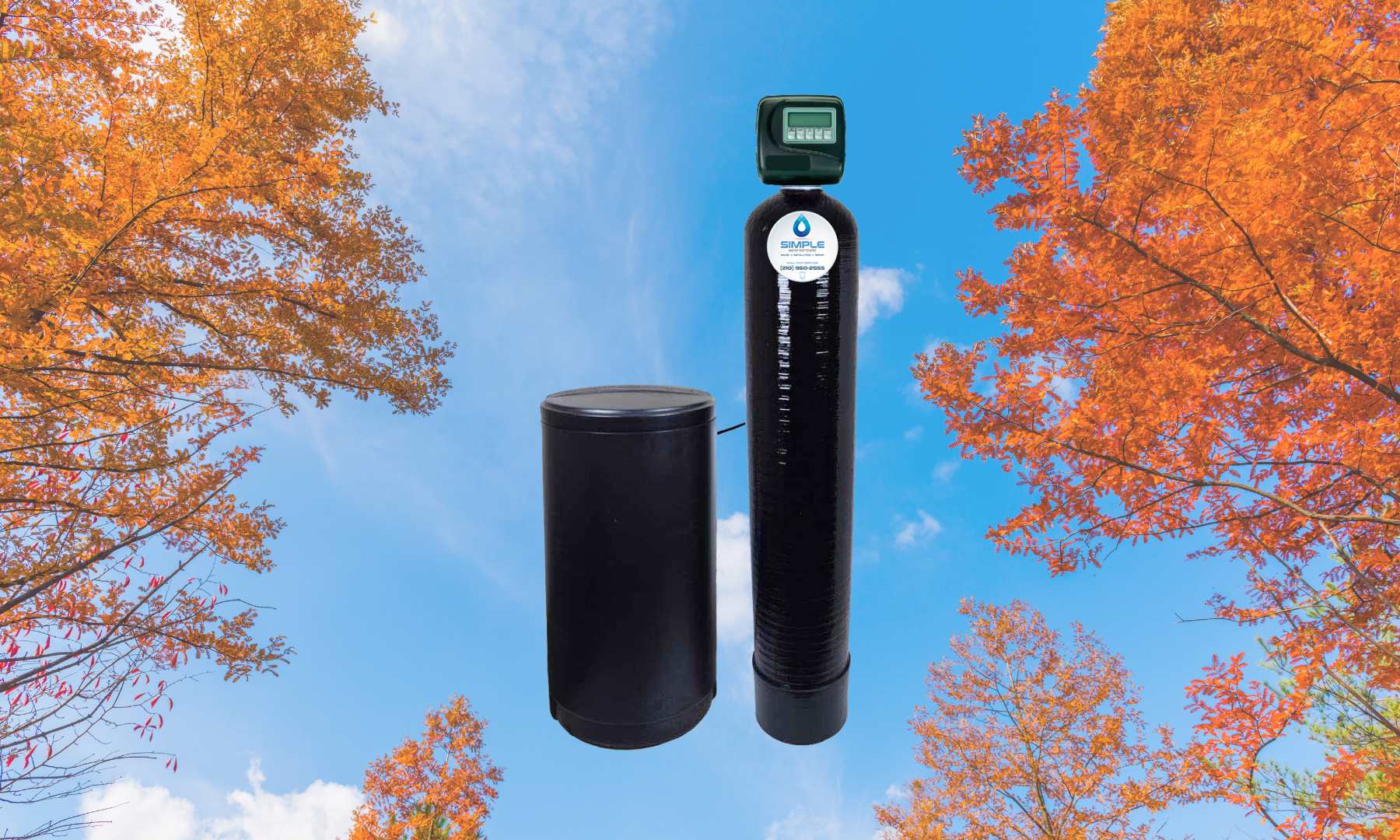
04 Oct. 2024
Fall Maintenance Tips for Your Water Softener System
As fall brings cooler temperatures and shifts in daily routines, it’s essential to ensure your water softener system is running smoothly. With the upcoming winter months, you want to avoid any disruptions that could impact your home’s water quality. To help, we’ve created a simple checklist of fall maintenance tips that will keep your water softener in top shape throughout the season.
1. Inspect the Salt Level
The salt in your brine tank plays a vital role in regenerating the resin beads that soften your water. During fall, it’s important to check your system’s salt level at least once a month. Make sure the salt is no lower than the halfway point. If it’s too low, your water softener won’t be able to perform effectively.
- Pro Tip: Use high-quality salt pellets to reduce buildup and ensure optimal performance.
2. Clean the Brine Tank
Over time, impurities from salt can build up in your brine tank, leading to what’s known as a “salt bridge” or “mushing.” This can prevent your system from properly softening the water. Fall is a great time to clean the tank and remove any salt buildup or sediment.
- How to clean: Simply disconnect the power, remove any salt, and scrub the inside with warm water and dish soap before refilling with fresh salt.
3. Check for Salt Bridges
Salt bridges can form when salt hardens and creates a crusty layer inside the brine tank. This can disrupt the regeneration process and reduce the effectiveness of your system. After checking your salt levels, gently tap the top of the salt with a broom handle to see if it’s hardened. If you find a salt bridge, break it up carefully.
4. Test Water Hardness
As the seasons change, the hardness level of your water may fluctuate. It’s a good idea to test your water hardness during the fall to make sure your water softener settings are calibrated correctly. You can purchase a simple water hardness test kit or request professional testing.
- Adjustment: If the hardness level has changed, adjust your water softener’s settings accordingly to ensure efficient operation.
5. Inspect and Clean the Resin Beads
The resin beads inside your water softener are responsible for attracting and removing minerals that cause hard water. Over time, they can become clogged with iron or other impurities. Cleaning the resin bed with a special resin cleaner ensures that your system can continue to function effectively.
- Pro Tip: You may want to schedule a professional cleaning or use a resin cleaner every six months to maintain optimal efficiency.
6. Flush the System
Occasionally flushing your water softener system is a good way to remove any lingering debris or buildup in the unit. This helps keep your system running smoothly and can prevent clogging.
- Simple flush: Manually initiate a regeneration cycle or follow the manufacturer’s instructions to run a full system flush.
7. Inspect Hoses and Connections
Fall is the perfect time to inspect all the hoses and connections on your water softener. Look for any signs of wear, leaks, or corrosion, especially if your system is located in a damp or cold area, such as a basement or garage.
- Pro Tip: If you find any cracks or leaks, it’s important to replace the affected parts to prevent further damage.
8. Check the Bypass Valve
The bypass valve allows you to control the flow of water in and out of the water softener. Make sure the valve is working properly and isn’t clogged with debris. This will ensure your system operates efficiently and provides soft water when needed.
9. Review the System Manual
If it’s been a while since you last looked at your water softener’s manual, now’s a great time to review it. The manual may include specific fall or seasonal maintenance tips for your particular model. This can help you stay on top of any unique tasks that could prolong the life of your system.
10. Schedule a Professional Tune-Up
While many maintenance tasks can be done yourself, scheduling a professional water softener tune-up is a great idea during the fall. A qualified technician can inspect all parts of the system, check for any issues you may have missed, and perform a thorough cleaning to keep your system running efficiently.
Conclusion
By following these fall maintenance tips, you can ensure your water softener continues to provide soft, clean water throughout the cooler months. Regular upkeep not only improves the performance of your system but also extends its lifespan, saving you money in the long run. For any questions or to schedule a professional tune-up, contact Simple Water Softeners today!
- By:Lisa Bauer
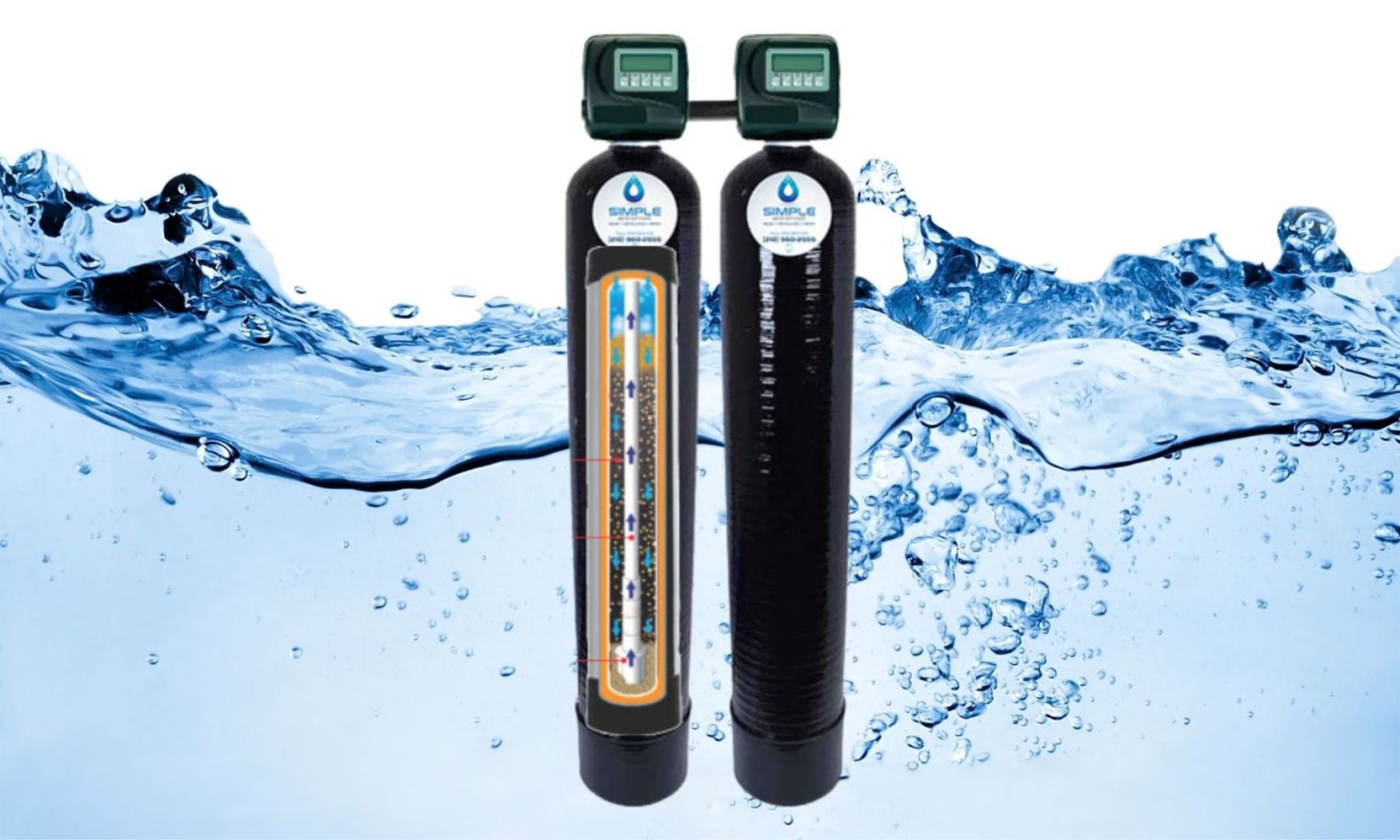
04 Sep. 2024
How Water Softeners Improve Water Quality During Drought Conditions
Drought conditions are no stranger to San Antonio residents. With the hot Texas sun bearing down, water levels can drop, and the city often faces water restrictions. During these challenging times, maintaining high water quality in your home becomes even more crucial. One of the key ways to ensure this is through the use of water softeners. In this blog post, we’ll explore how water softeners can help improve water quality during drought conditions and provide practical tips on conserving water while still benefiting from softened water.
Understanding the Impact of Hard Water During a Drought
San Antonio is known for its hard water, which contains high levels of calcium, magnesium, and other minerals. These minerals can cause a range of problems, from scaling in pipes and appliances to dry skin and dull hair. During drought conditions, these issues can be exacerbated as the mineral concentration in the water can increase due to lower water levels. This makes it even more important to have a water softener in place to help combat the effects of hard water.
How Water Softeners Improve Water Quality
Water softeners work by removing the minerals that cause hardness, resulting in softer, more manageable water. Here’s how they can be particularly beneficial during drought conditions:
- Reduced Scale Buildup: Hard water leads to scale buildup in pipes and appliances, which can reduce their efficiency and lifespan. During droughts, the water supply may have an even higher concentration of minerals, leading to more rapid scaling. A water softener helps to prevent this, ensuring your plumbing and appliances operate smoothly.
- Better Soap Efficiency: Softened water lathers better with soap, meaning you use less soap and detergent for the same cleaning effect. This is particularly useful during droughts when water conservation is key. Using less soap also means fewer chemicals are released into the environment.
- Improved Skin and Hair Health: Hard water can leave a residue on your skin and hair, causing dryness and irritation. During droughts, when water use might be limited, the last thing you need is to deal with skin and hair problems caused by hard water. A water softener helps maintain softer water, which is gentler on your skin and hair.
- Protecting Water Heaters and Other Appliances: Hard water can cause scale buildup in water heaters, making them less efficient and more expensive to operate. With water softeners, the risk of scale buildup is significantly reduced, helping your water heater run more efficiently and last longer, which is especially important during droughts when every drop counts.
Tips for Conserving Water While Using a Water Softener
While water softeners are great for improving water quality, it’s still important to be mindful of water usage, especially during droughts. Here are some tips to help you conserve water while still enjoying the benefits of softened water:
- Optimize Your Water Softener Settings: Make sure your water softener is set to the correct hardness level. Over-softening can lead to unnecessary water use during the regeneration process. Consult your owner’s manual or contact a professional to ensure your system is set up correctly.
- Fix Leaks Promptly: Even small leaks can waste a significant amount of water over time. Regularly check for and repair any leaks in your plumbing to avoid wasting softened water.
- Use Water-Efficient Fixtures: Install water-efficient showerheads, faucets, and toilets to reduce water usage without sacrificing performance. These fixtures help you conserve water while still benefiting from the comfort of softened water.
- Regenerate Your Softener During Off-Peak Hours: Schedule your water softener to regenerate during times when water demand is low, such as late at night. This reduces the strain on the local water supply during peak usage times.
- Practice Smart Landscaping: Use drought-resistant plants and efficient irrigation systems in your landscaping. This reduces the need for frequent watering and helps you conserve water.
Conclusion
Water softeners play a crucial role in maintaining water quality, especially during the drought conditions often faced by San Antonio residents. By reducing scale buildup, improving soap efficiency, and protecting appliances, water softeners help ensure that you continue to enjoy high-quality water even during dry spells. By following water conservation tips and using your water softener efficiently, you can help make the most of your water supply while still enjoying the many benefits of softened water.
If you’re ready to improve your water quality and make your home more drought-resilient, consider investing in a high-quality water softener from Simple Water Softeners. Contact us today to learn more!
- By:Lisa Bauer
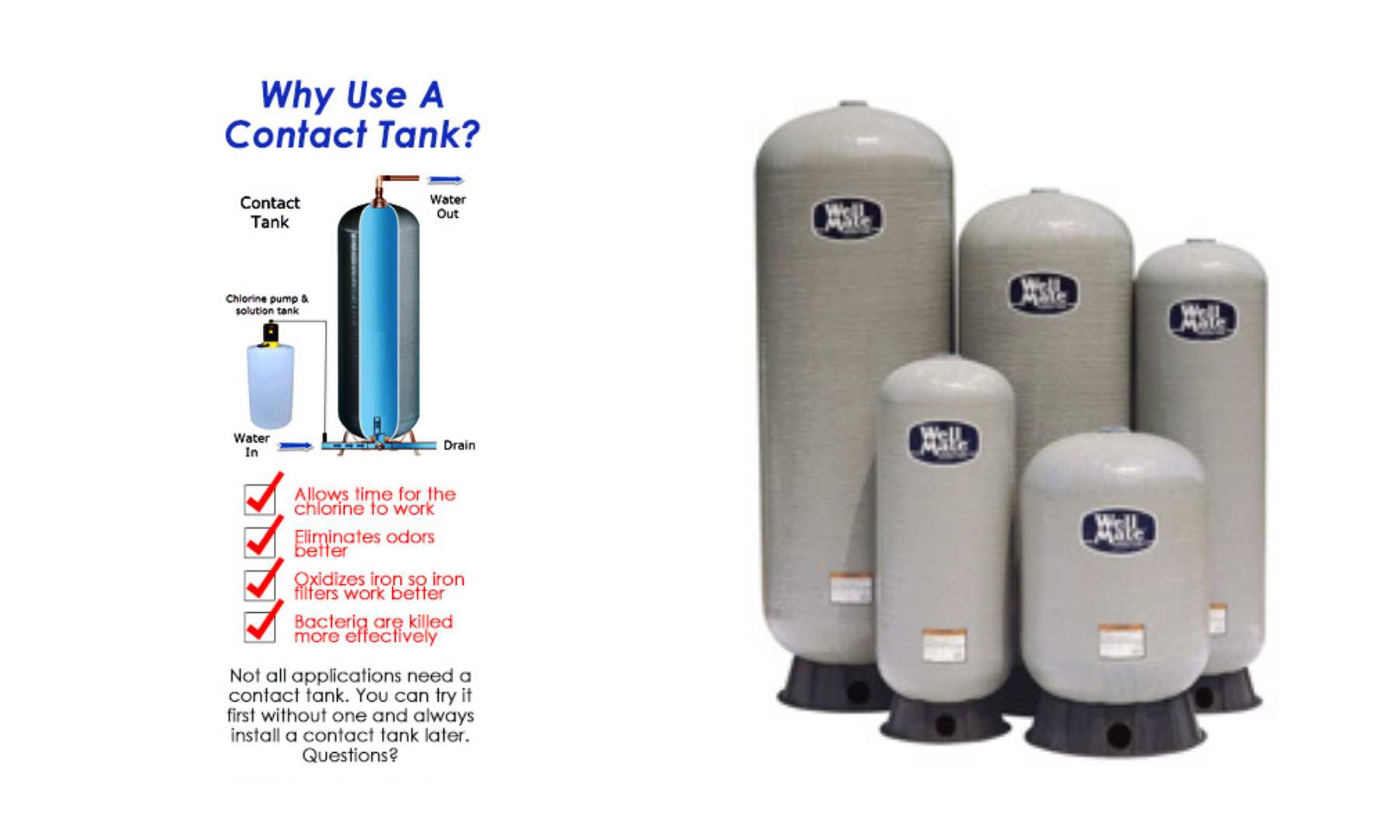
01 Aug. 2024
The Importance of Retention Tanks in Water Treatment for San Antonio Homes
Ensuring Optimum Water Quality in San Antonio
At Simple Water Softeners, we understand the unique water treatment needs of San Antonio residents. The hard water prevalent in our area requires specialized solutions to ensure the highest quality water for your home. One crucial component of our water treatment systems is the retention tank. Retention tanks play a vital role in ensuring that your water is not only softened but also safe and free from harmful contaminants. In this blog post, we will explore the significance of retention tanks in chemical treatment processes and highlight the features of our durable and efficient retention tanks specifically designed for San Antonio homes.
What is a Retention Tank?
A retention tank is a storage tank that holds water for a specified period, allowing for adequate contact time during chemical treatment. This contact time is essential for the effective removal of contaminants and the proper functioning of the water treatment process. Retention tanks are especially important in systems that use chemicals to treat water, as they ensure that the chemicals have enough time to interact with the water and perform their intended functions.
The Role of Retention Tanks in Chemical Treatment
During chemical treatment, various chemicals are added to the water to eliminate impurities, neutralize harmful substances, and improve overall water quality. For these chemicals to work effectively, they need sufficient time to react with the water. This is where retention tanks come into play. By providing a controlled environment for the water to reside in, retention tanks ensure that the chemicals have the necessary contact time to achieve optimal results.
Features of Our Retention Tanks
At Simple Water Softeners, we take pride in offering top-of-the-line retention tanks that are designed to meet the highest standards of quality and durability. Here are some key features of our retention tanks:
- Optimum Contact Time: Our retention tanks are meticulously sized to provide the ideal contact time required for chemical treatment. This ensures that the chemicals have ample time to react with the water, leading to effective contaminant removal and improved water quality.
- Lightweight and Durable: Our retention tanks are made from NSF-listed polyethylene, which is known for its lightweight yet robust properties. This makes our tanks easy to install and maintain while ensuring long-lasting performance.
- Non-Corrosive Design: The seamless, one-piece inner shell of our retention tanks is completely non-corrosive. This is crucial for maintaining the integrity of the tank and preventing any chemical reactions that could compromise the water treatment process.
- Seamless Construction: The seamless construction of our retention tanks eliminates the risk of leaks and ensures that the tank remains structurally sound over time. This contributes to the overall reliability and efficiency of the water treatment system.
Why Choose Simple Water Softeners for Your San Antonio Home?
When it comes to water treatment in San Antonio, quality and reliability are paramount. At Simple Water Softeners, we are committed to providing our customers with the best solutions to meet their water quality needs. Our retention tanks are just one example of our dedication to excellence. By choosing our products, you can trust that you are investing in a system that will deliver superior performance and long-term benefits for your home.
Local Expertise and Service
As a local business, we understand the specific challenges that San Antonio residents face with their water quality. Our team is familiar with the unique characteristics of the area’s water supply and is equipped to provide customized solutions that address these issues effectively. From the initial consultation to installation and ongoing maintenance, Simple Water Softeners is your trusted partner for all your water treatment needs in San Antonio.
Conclusion
Retention tanks are a critical component of effective water treatment systems, especially in areas with hard water like San Antonio. They ensure that chemicals have the necessary contact time to interact with the water, leading to the removal of contaminants and the enhancement of water quality. At Simple Water Softeners, our durable, lightweight, and non-corrosive retention tanks are designed to provide optimal performance and reliability. Trust us to deliver the best water treatment solutions for your San Antonio home. Contact us today to learn more about our products and how we can help you achieve the highest quality water for your home.
- By:Lisa Bauer
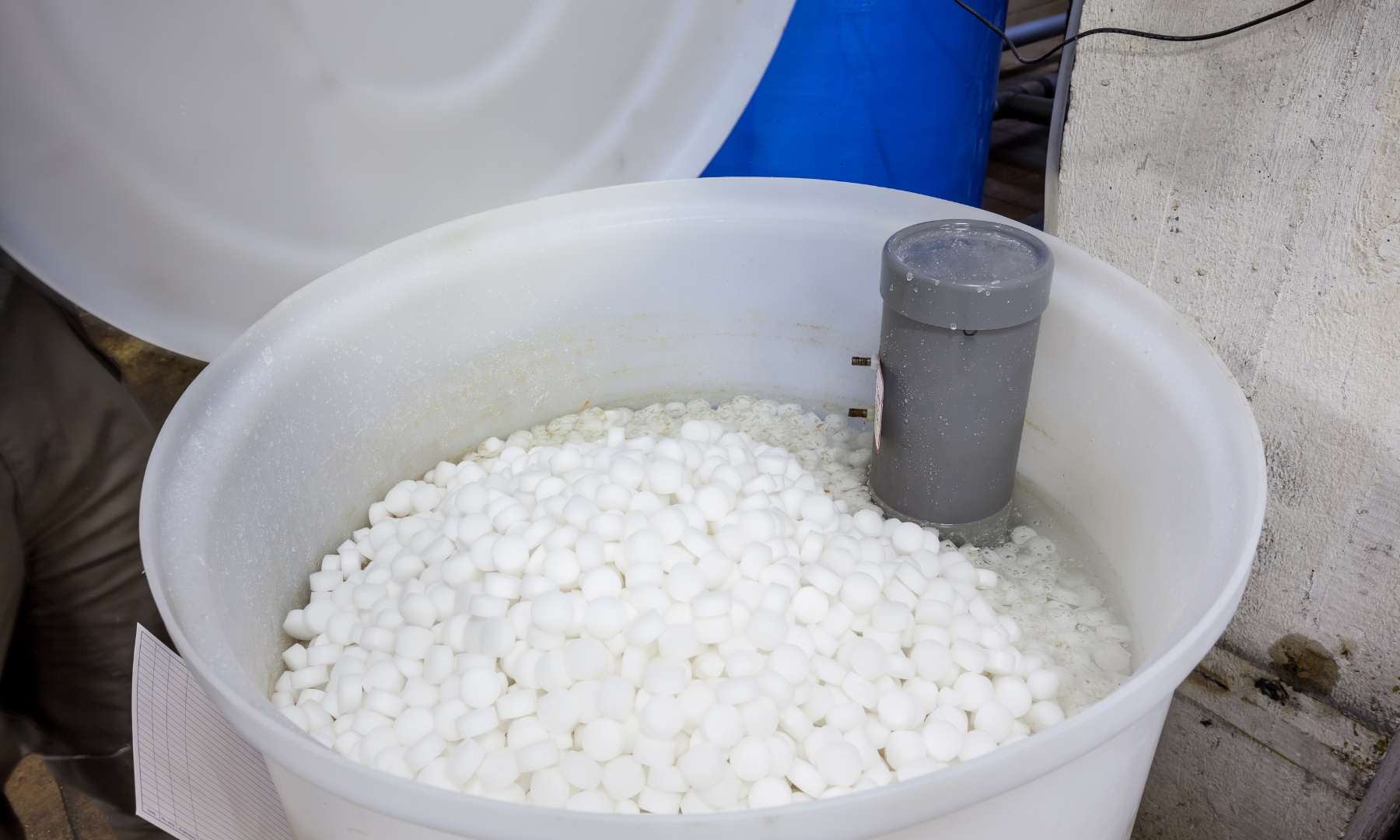
10 Jul. 2024
Most Common Issue When Your Water Softener Isn’t Working
Water softeners have become much easier to troubleshoot than in the past. While repairing a water softener can be challenging, with the right knowledge, you can fix common issues and get your system back up and running in no time.
The Most Common Issue: Salt Bridges
One of the most common issues with water softeners, especially in humid climates, is the formation of a salt bridge in the brine tank. This occurs when salt becomes hard and caked together, preventing it from dissolving properly during the regeneration cycle.
Identifying a Salt Bridge
When you add too much salt to the brine tank, the salt can harden above the water line, forming a bridge. The softener unit regenerates and washes the salt out of the bottom of the tank during the cycle, but the hardened salt above the water line doesn’t fall to the bottom. To check for a salt bridge, gently tap the outside of the tank. If it sounds hollow, a salt bridge may have formed.
Breaking Up a Salt Bridge
Most brine tanks have a plastic plate about six inches from the bottom. Be careful not to damage this plate when breaking up the salt. Here’s how you can break up a salt bridge safely:
- Use a Broomstick: Insert a broomstick or similar object into the tank and gently break up the salt. Avoid poking all the way to the bottom to prevent damaging the plastic plate.
- Hot Water Method: If the salt is particularly stubborn, pour a pitcher of very hot water around the edges of the tank. This will help dissolve the hardened salt. Then, tap around the edges to encourage the salt to fall to the bottom.
- Kick Method: Some people give the brine tank a swift kick to break up the salt bridge. Be gentle to avoid damaging the tank.
For visual learners, YouTube has several helpful videos on breaking up a salt bridge.
Why a Salt Bridge Matters
The water softener unit requires brine water (salty water) to wash the resin during regeneration. This process helps remove calcium from the resin beads, which is then washed down the drain. Without proper brine water, the unit regenerates with plain water, which does not remove calcium from the beads. Consequently, the beads remain full of calcium, and hard water continues to flow into your home.
Manual Regeneration Cycle
After breaking up a salt bridge, manually regenerate the system. Allow the salt and water to sit for about four hours to create brine water. Once regenerated, the cold water should be soft immediately, but it may take a few days for the hot water to become soft again if hard water has been an issue.
When to Call a Professional
If you do not find a salt bridge or the issue persists, it’s time to call a professional. Simple Water Softeners repairs many brands and can help diagnose and fix the problem. Give us a call at (210) 960-2555, and we’ll assist you in resolving your water softener issues.
By addressing these common problems, you can ensure your water softener operates efficiently, providing your home with the soft water it needs.
- By:Lisa Bauer
